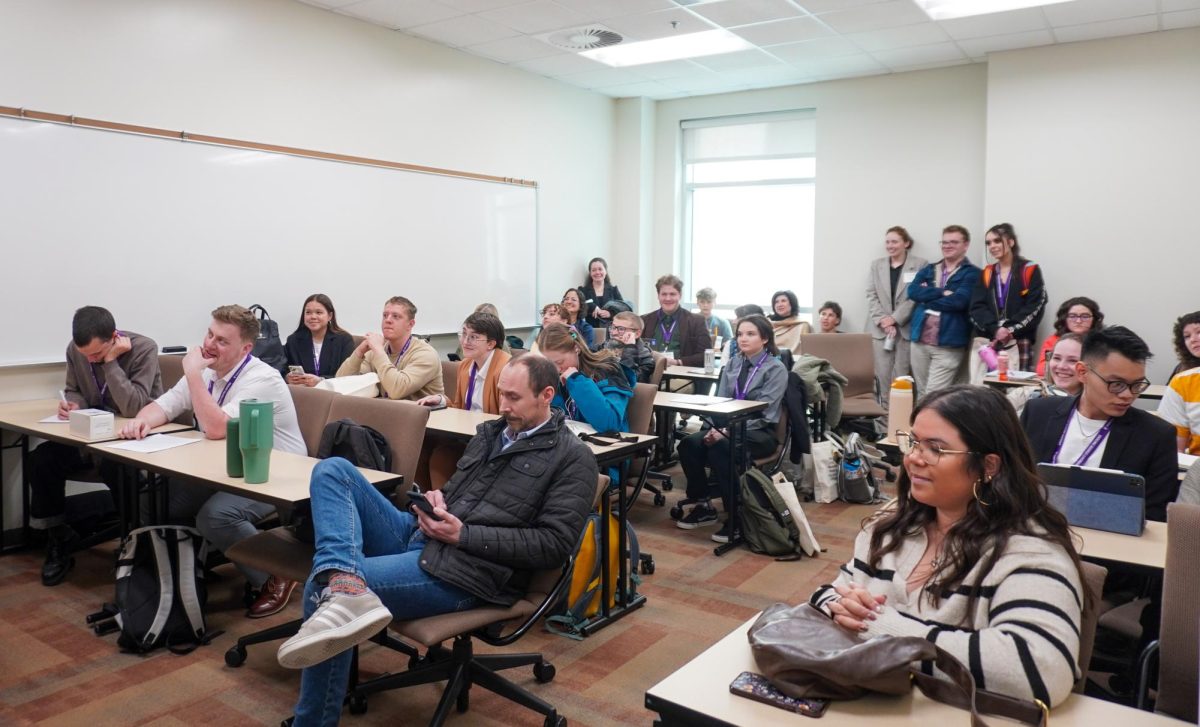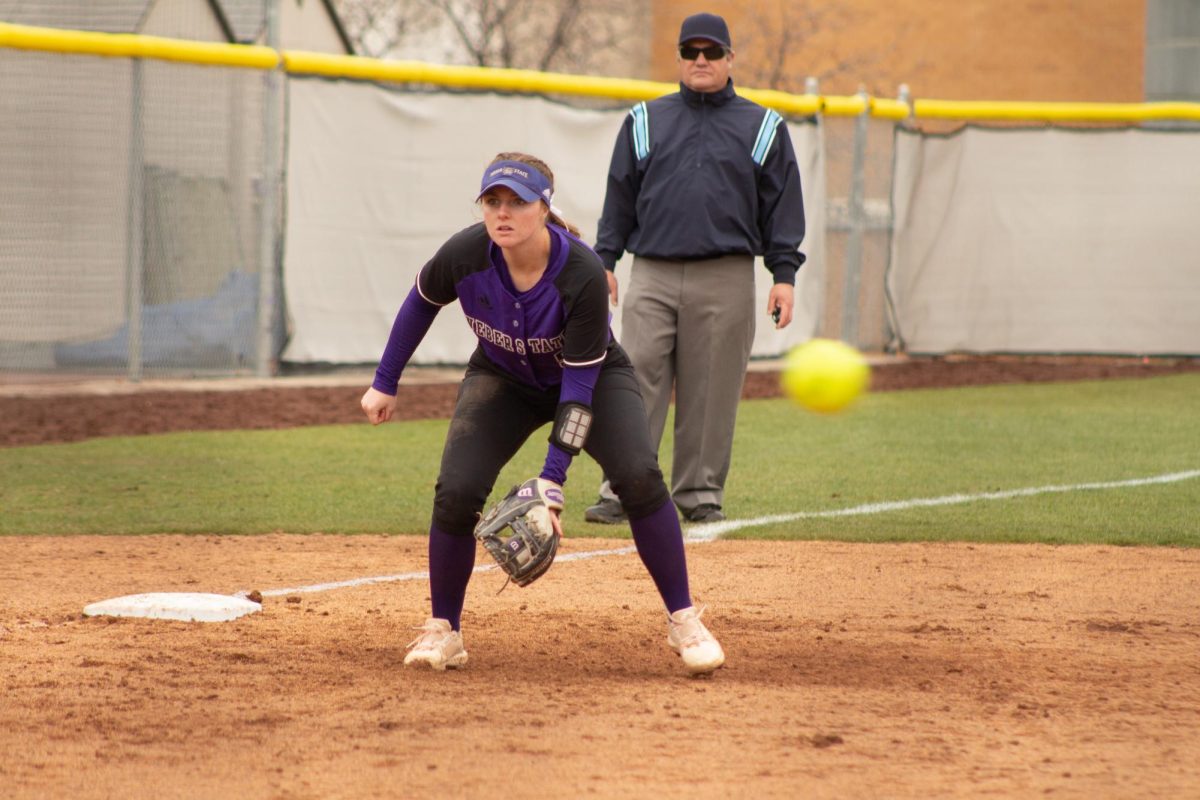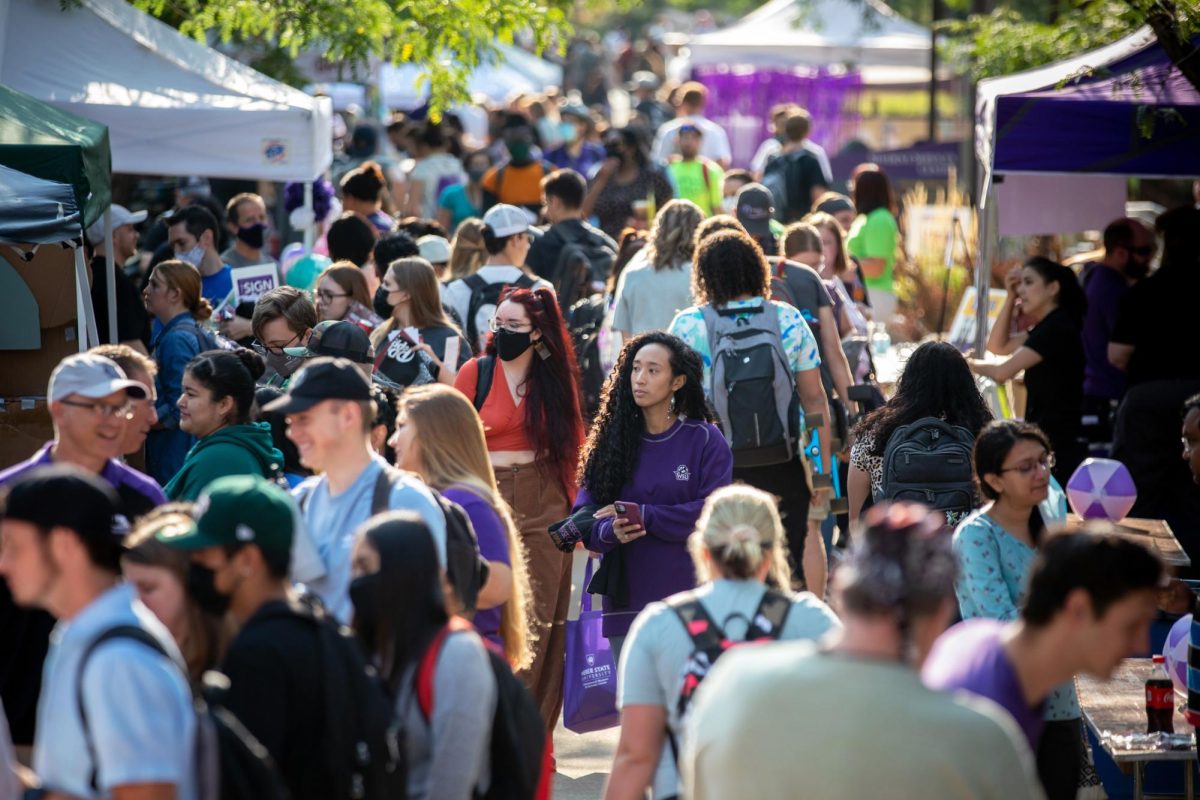The sound of colorful blocks clicked together mixed with the laughter of junior high students. A student teacher walked around the room, encouraging the students to figure out the next shape to the Soma cube. This was the activity for the after-school program the Weber State University Science Department provides for junior high students.
The after-school program allows students from different majors of the science department to come and volunteer for the program. Majors of volunteers include anthropology, botany, math education, computer science and microbiology. Professor Barbara Wachocki, head of the after-school program and chair of the WSU Botany Department, received the Hemingway Excellence Grant last spring in order to fund the program. Junior high schools such as Ogden Prep Academy, the DaVinci Academy, Mount Ogden Junior High School, Mound Fort Junior High School and Highland Junior High School participate in the after-school program.
Some of the activities the departments do for the lessons include dissecting plants for botany, solving Soma cube puzzles for math, making yogurt in a cup for microbiology and making websites for computer science. Activities are designed to get students involved and to recognize different fields of study to possibly seek out.
“I think as a college, as a whole, we’re trying to get students interested in STEM fields,” Wachocki said. “You know — science, technology, engineering and math. I’ve always been interested in trying to recruit students earlier, so I really think middle school is an important time, because they might not have already chosen (their career path).”
Deborah Neal, teacher of seventh- and eighth-grade science and chair for the DaVinci Academy Science Department, works closely with Wachocki for the after-school program. They worked together last year on opening a community garden across the street from the DaVinci Academy, and developed the idea of having college students come into junior high schools classes to teach the students about science.
Professors at WSU recruited students specializing in particular science majors to help with the program. Heather Wilkinson, a second-year senior majoring in math teaching, was approached by her professor for the program.
“The biggest thing to learn is to be quick on your feet,” Wilkinson said. “Like, I could do something different for other students if my first method doesn’t work out.”
Wilkinson said it was a learning experience for her as an aspiring high school teacher. She said that, after this experience, she is open to possibly teaching junior high students as well.
“It’s definitely an outreach opportunity for students for education,” Neal said. “Now that we’ve gotten the program started, I hope that it will build and will continue on.”
Wachocki said she hopes that with another grant, she can fund future projects such as the trails project, for which the science department can go out and put signs up about different wildlife, plant life and geology and why they’re important to the environment.
“Even if students don’t want to have a career in science,” Wachocki said, “it’s good to be an educated citizen and knowing what is going on in the world. It will help our future, like who to choose for the next candidate in office.”



















